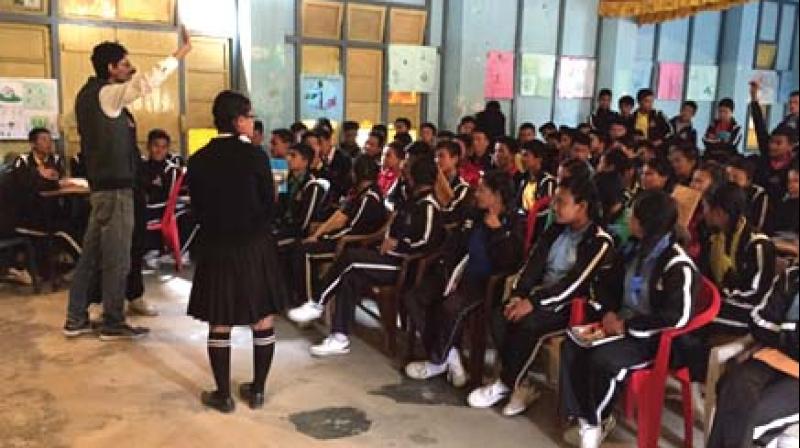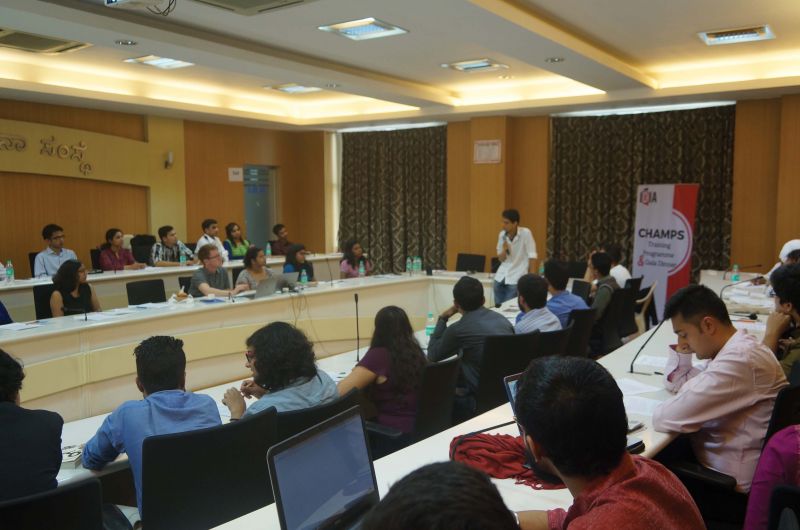An IDIA' to empower the poor

Bengaluru: The rocky past did not deter 23-year-old Karthika Annamalai, daughter of a stone quarry worker from Marenahalli Bande on the outskirts of Bengaluru. After finding her way through one of the most prestigious law schools in the country, NUJS-Kolkata, she has now officially achieved her lifelong dream of becoming a practicing lawyer.
Growing up in a violent household – she lived with an alcoholic uncle who often abused her and her mother – she realised the importance of standing up for herself at an early age. After her father was murdered, odd jobs and quarrying were the only options before her, but she wanted more. “I wanted to pursue law, mostly because of the humanitarian aspect of it. I remember listening to a lecture in school one day about a landlord bullying a farmer. I had seen my mother in similar situations. I wanted to do something to help and make things better,” she recalls.
The lecture she is referring to was one of the sensitisation sessions held by IDIA (Increasing Diversity by Increasing Access) Foundation, a city-based organisation which reaches out to underserved communities all over the country and trains and helps them to get into top law schools. Her inspiring story is one of the many that they have seen over the years, says the founder, Prof Dr Shamnad Basheer, who is an Honorary Research Professor of IP Law at Nirma University.

What started on a whim to visit a school in North-Eastern India quickly turned into a revolution in its own measure. “The IDIA project was launched through a pilot in Sikkim. Along with four of my students, I walked into a small government school in Pelling, a quaint town that boasts of panoramic views of the Himalayas. In all honesty, we walked in on an impulse, but what it finally led to went beyond our wildest dreams,” exclaims Dr Basheer.
Since its inception in 2010, out of 250 students from across the country who were brought under the umbrella of IDIA, 89 secured admissions across various top law schools.
On an average, it costs a student approximately Rs 3.5 lakh to put themselves through the five year of law school and this was one of the reasons behind starting the initiative. “The increasing elitism and homogeneity at the leading national law schools, something I witnessed first-hand when I returned to India from the US in 2008, was gigantic. Something had to be done,” he says.
He also realised that the best way to fight for an inclusive environment in law was arming these excluded members of society with knowledge that they could then use for themselves.
“Rather than simply relying on the privileged to take up cudgels for the underprivileged, a more effective way of empowering them is by directly placing the tools of the law in their hands. This is a far more meaningful way of empowering people,” remarks Dr Basheer.
IDIA is operational in 19 states and has over 500 volunteers to help these students get through the school through peer support. They not only help these kids pass the entrance, but also get them scholarships and sponsorships in the later phases of their education.
“There are volunteers in these various law schools that we are tied up with who help these kids get accustomed to the brand new social structure,” he adds.

